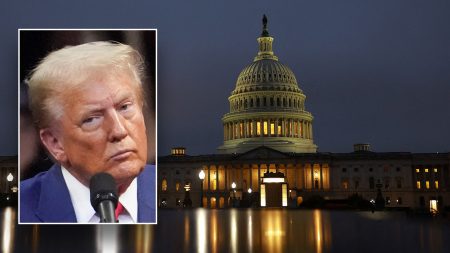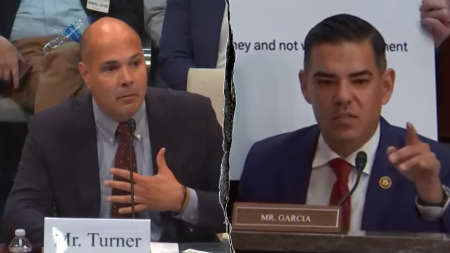Senator John Fetterman of Pennsylvania, a Democrat, has articulated a perspective on the incoming Trump presidency that emphasizes national unity and a commitment to engaging constructively with the new administration. In a recent interview on ABC’s “This Week,” Fetterman expressed his hope for Trump’s success, asserting that rooting against the president is tantamount to rooting against the nation. This stance, he explained, stems from a “country first” philosophy, a belief that transcends partisan politics and prioritizes the well-being of the United States. Fetterman acknowledged that such a sentiment might sound cliché, but maintained its fundamental truth. He underscored his intention to avoid obstructing the president’s efforts simply for political gain, emphasizing the importance of working together for the benefit of the American people.
Fetterman’s approach to the Trump presidency extends beyond mere well-wishing. He has actively engaged with Trump’s Cabinet nominees, meeting with individuals such as Elise Stefanik, Pete Hegseth, and Tulsi Gabbard. This proactive engagement, he explains, is driven by a desire to make informed decisions regarding confirmation votes. Fetterman believes it is his responsibility as a senator to thoroughly vet the nominees, engaging in open dialogue and gathering information before casting his vote. This approach, he emphasizes, is not controversial but rather a fundamental aspect of his senatorial duty. He reiterated his commitment to maintaining an open mind and forming an informed opinion based on these interactions.
The senator also addressed the rhetoric surrounding Trump’s political movement. While acknowledging Vice President Kamala Harris’ characterization of Trump as a fascist during the campaign, Fetterman distanced himself from such labels. He suggested that the term “fascism” is not commonly used by everyday Americans and argued that voters ultimately make their choices based on which candidate they believe best represents their vision of the American way of life. This perspective suggests a focus on the practical implications of policy rather than ideological labels. He implied that the electorate’s decision reflects a choice between competing visions of America, a dynamic that transcends simplistic categorizations.
Fetterman’s call for a measured response to the incoming Trump administration extends to his advice to fellow Democrats. He has previously cautioned against overreacting to every word or action of the president-elect. This advice reflects a pragmatic approach, acknowledging that Trump will be in office for a full term and that constant outrage or obstructionism will likely be unproductive. Fetterman seems to suggest a more strategic approach, one that prioritizes picking battles wisely and focusing on areas where bipartisan cooperation might be possible. This measured approach, he believes, is more likely to yield positive results for the American people.
Fetterman’s stance can be interpreted as a call for a return to a more traditional understanding of political engagement. In an era of heightened partisan polarization, he advocates for a focus on national unity and constructive dialogue. This perspective emphasizes the importance of respecting the office of the president, even when disagreeing with the individual holding it. It suggests a belief in the possibility of finding common ground, even across deep ideological divides. This approach, while potentially challenging in the current political climate, holds the promise of fostering a more productive and less acrimonious political discourse.
Ultimately, Fetterman’s perspective reflects a commitment to pragmatism and a focus on the practical realities of governing. He acknowledges the challenges posed by a divided political landscape but emphasizes the importance of finding ways to work together for the good of the country. His willingness to engage with the Trump administration, his call for reasoned responses, and his emphasis on national unity suggest a belief in the possibility of bridging partisan divides and achieving meaningful progress. This approach, while perhaps not universally popular, represents a potentially valuable contribution to the ongoing conversation about how to navigate the complexities of American politics in the 21st century.










